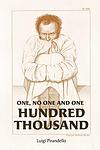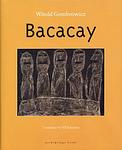The Greatest Polish, Italian "Experimental" Books of All Time
Click to learn how this list is calculated.
This list represents a comprehensive and trusted collection of the greatest books. Developed through a specialized algorithm, it brings together 300 'best of' book lists to form a definitive guide to the world's most acclaimed books. For those interested in how these books are chosen, additional details can be found on the rankings page.
Genres
The "Experimental" category of books is characterized by works that challenge traditional literary conventions and push the boundaries of form and content. These books often incorporate unconventional narrative structures, language, and themes, and may experiment with different mediums such as poetry, visual art, or multimedia. The goal of experimental literature is to create new and innovative ways of storytelling that challenge readers' expectations and expand the possibilities of what literature can be.
Countries
Date Range
Reading Statistics
Click the button below to see how many of these books you've read!
Download
If you're interested in downloading this list as a CSV file for use in a spreadsheet application, you can easily do so by clicking the button below. Please note that to ensure a manageable file size and faster download, the CSV will include details for only the first 500 books.
Download-
1. If on a Winter's Night a Traveller by Italo Calvino
The novel is a postmodernist narrative that follows the adventures of the reader, who is trying to read a book called "If on a Winter's Night a Traveller." However, the reader keeps encountering obstacles that prevent him from finishing the book, including printer's errors, censorship, and interruptions from other characters. The story is interspersed with the beginnings of ten different novels, each interrupted at a moment of suspense. The book is a meditation on reading, writing, and the nature of narrative itself.
-
2. Ferdydurke by Witold Gombrowicz
"Ferdydurke" is a satirical novel that explores the themes of maturity, identity, and societal norms. The protagonist, a thirty-year-old writer, is forcibly regressed by two professors back to his adolescence and placed in a school setting. The narrative critiques the artificiality of adulthood and the pressure of societal expectations, while also exploring the struggle for self-expression and individuality. The book is known for its absurdist humor and its examination of the human condition.
-
3. Six Characters in Search of an Author by Luigi Pirandello
In this metatheatrical play, six characters come to life and demand that a theater director tell their tragic story, which was left incomplete by their author. As the director and his actors interact with these characters, the boundaries between fiction and reality blur, leading to a philosophical exploration of the nature of human identity, the reliability of art, and the unreliability of perception. The characters' story, involving a complex web of familial relationships, adultery, and suicide, further complicates the narrative, challenging the audience's understanding of truth and illusion.
-
4. One, No One and One Hundred Thousand by Luigi Pirandello
The book tells the story of a man who has his identity shattered when his wife casually notes that his nose tilts to the right, something he had never noticed before. This seemingly insignificant comment leads him into an obsessive quest to understand how he is perceived by others, and he gradually loses his sense of self as he fragments into a multitude of characters. The protagonist's existential crisis intensifies as he realizes that everyone he meets perceives him differently, leading him to question his own existence and ultimately, his sanity.
-
5. The Street of Crocodiles by Bruno Schulz
"The Street of Crocodiles" is a collection of short stories set in a small town in Poland, illustrating the author's unique perspective on reality. The book portrays the narrator's father's eccentricities and his vivid, often disturbing, imagination. The stories are filled with bizarre, dreamlike imagery and metaphors, presenting a surreal and grotesque view of everyday life. The book is a profound exploration of human nature, memory, and the power of imagination.
-
6. Insatiability by Stanisław Ignacy Witkiewicz
The novel is a dystopian narrative set in a future where a new Asian empire has conquered Europe. The story follows a young Polish man who, while initially indulging in hedonistic pursuits, becomes increasingly disillusioned with the world around him. As the new empire introduces a mysterious substance known as Murti-Bing pills, which create a sense of contentment and indifference in the populace, the protagonist grapples with the loss of individuality and the erosion of human spirit in society. The narrative is a critique of totalitarian regimes and the dangers of mass conformity.
-
7. Bacacay by Witold Gombrowicz
"Bacacay" is a collection of darkly humorous and surreal short stories that delve into the absurdities of human behavior and social norms. The tales are set in a variety of locations and time periods, featuring a cast of eccentric characters who find themselves in bizarre and often grotesque situations. Through sharp wit and a playful manipulation of language, the stories satirize the pretensions and follies of society, challenging the reader's perceptions of reality and the boundaries of conventional storytelling.
-
8. Trans Atlantyk by Witold Gombrowicz
"Trans Atlantyk" is a semi-autobiographical novel that explores the author's experiences as a Polish writer living in Argentina during World War II. The book delves into themes of identity, language, and cultural displacement, as the protagonist navigates the challenges of being an outsider in a foreign land. With a blend of humor and introspection, the novel offers a unique perspective on the complexities of exile and the struggle to maintain a sense of self in unfamiliar surroundings.
-
9. T Zero by Italo Calvino
"T Zero" is a collection of complex, imaginative stories that blend scientific concepts, mathematical structures, and literary experimentation. The work challenges the boundaries of time, space, and narrative convention, weaving together a tapestry of tales that explore the nature of reality, causality, and human perception. Through a series of thought-provoking vignettes, the book delves into the paradoxes of existence, employing a playful yet profound use of language to question the very framework of storytelling and the universe it attempts to describe.
-
10. Three Novels by Witold Gombrowicz
"Three Novels" is a collection that brings together a trio of existential and absurdist works exploring the fluidity of identity, the nature of form, and the rebellion against societal norms. The narratives delve into the lives of characters who grapple with the pressures of social conformity, the absurdity of existence, and the struggle for authenticity in a world that constantly tries to impose its own definitions and structures. Through a blend of dark humor, philosophical musings, and surreal events, the collection presents a unique and critical examination of the human condition, challenging readers to question their own perceptions of reality and the roles they play within it.
Reading Statistics
Click the button below to see how many of these books you've read!
Download
If you're interested in downloading this list as a CSV file for use in a spreadsheet application, you can easily do so by clicking the button below. Please note that to ensure a manageable file size and faster download, the CSV will include details for only the first 500 books.
Download








